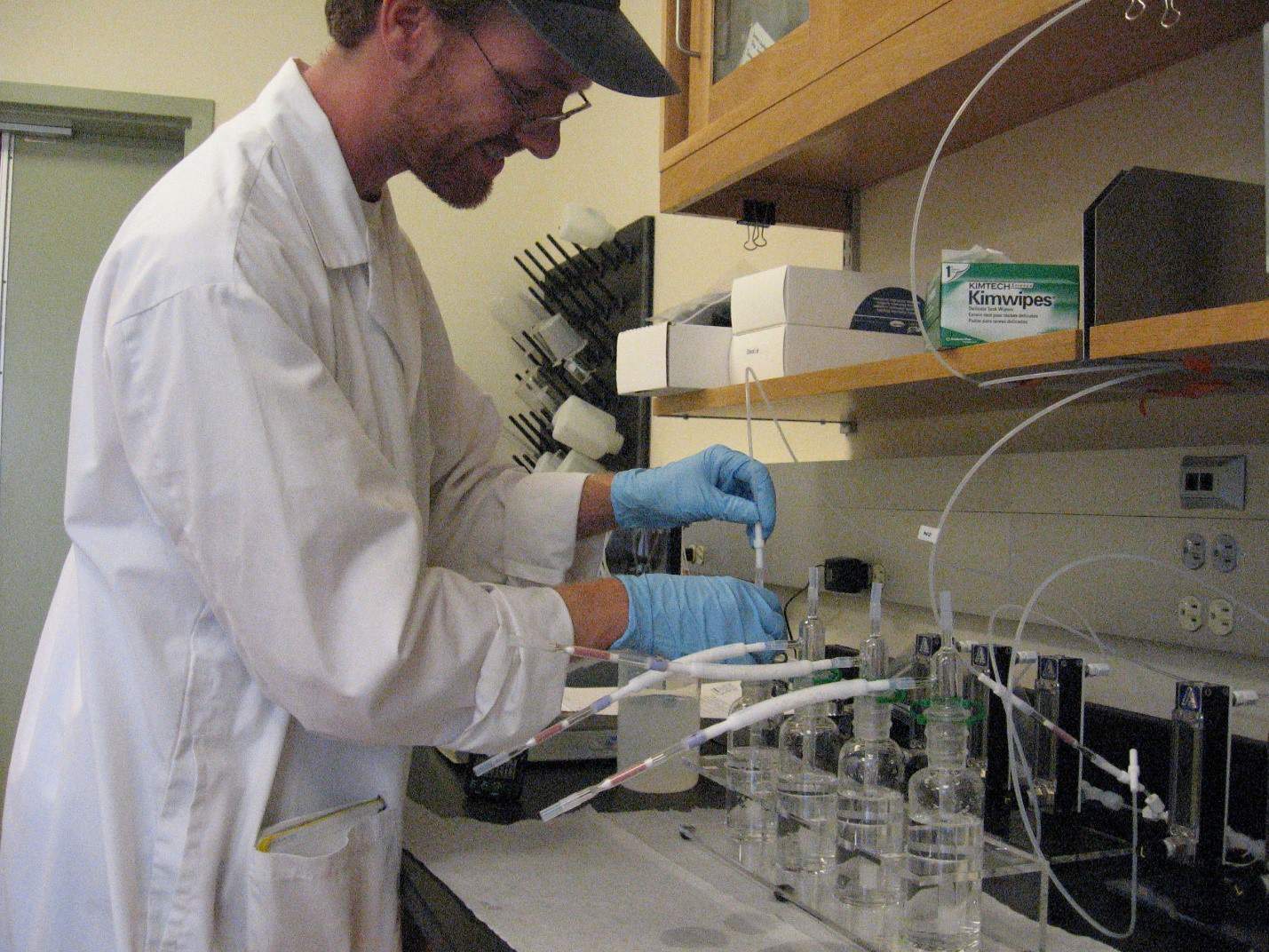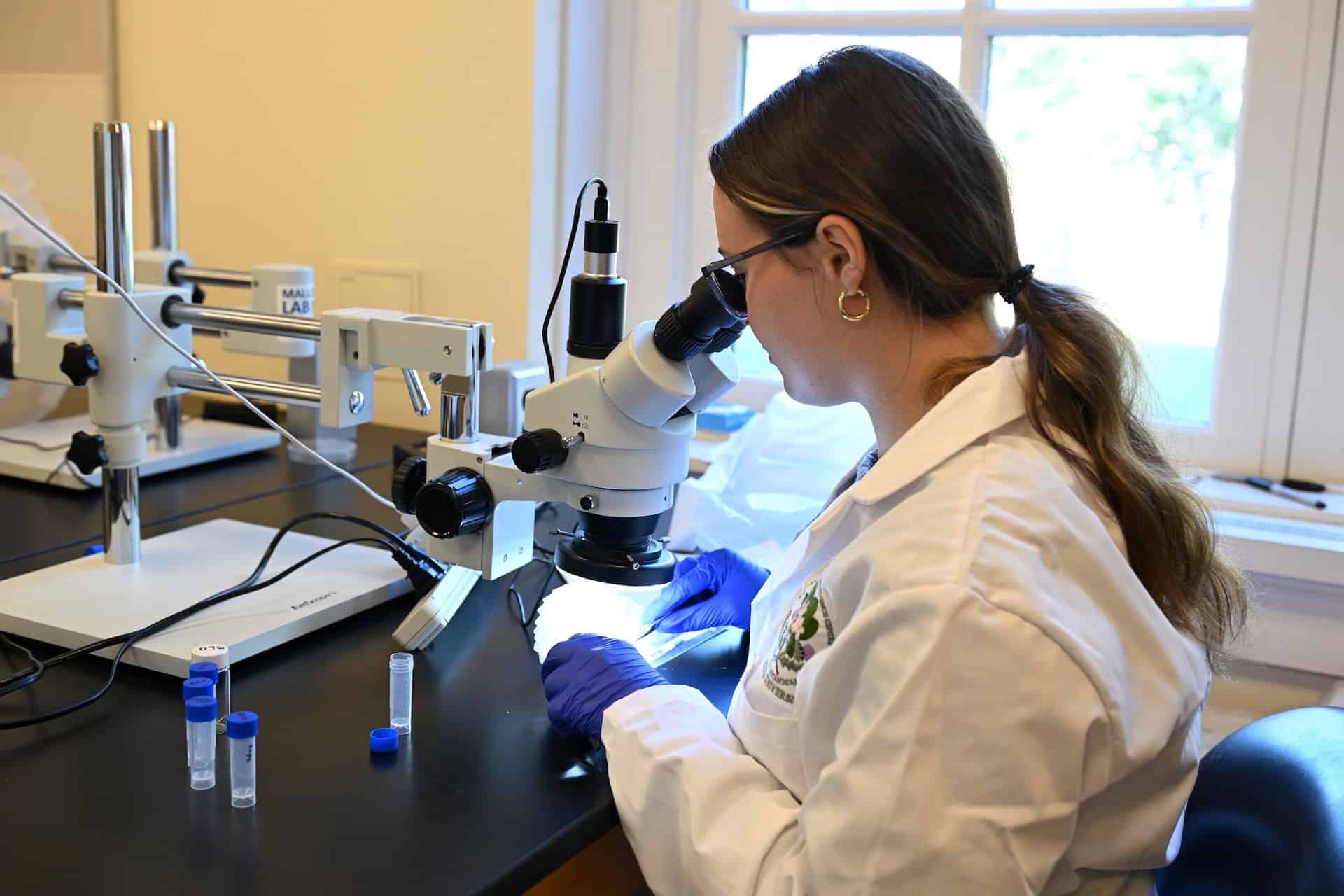Environmental contaminants negatively impact the natural world. Our interdisciplinary lab space brings together faculty and students from the chemistry, environmental science, biology, and engineering departments to study and measure environmental contaminants to provide the information required for effective management and remediation.


These researchers and the students they work with use state-of-the-art facilities dedicated to analyzing water quality, bacterial contamination, mercury accumulation, and trace metals. The Centre for Analytical Research in the Environment (CARE) encompasses four labs housed in the K.C. Irving Environmental Science Centre.
The CARE facility trains and hires many undergraduate students, providing an opportunity not common at many other institutions and offering Acadia students a distinct career advantage. [More details, PDF]
The labs, established as a result of five successful Canada Foundation for Innovation (CFI) applications, are managed by:
- Dr. John Murimboh (Chemistry), whose lab conducts analytical research on trace metals and
chemical speciation in the environment - Dr. Nelson O’Driscoll (Earth and Environmental
Science), whose lab focuses broadly on mercury
biogeochemistry - Dr. Jennie Rand (Engineering), whose lab focuses on drinking water quality and the environment.
The CARE facility is available to analyze water, soil, sediments, vegetation, animal tissue, and suspected contaminants. If you are interested in working collaboratively with the CARE lab, please contact lab managers.
Recent Changes
In 2024 Dr. Mark Mallory moved into the K.C. Irving Centre. One topic of his research program is microplastics in the environment, with a focus on studying sea bird diet. This work fits well with the micro contaminant research focus of the analytical laboratories in the K.C. Irving Centre.


 Acadia University
Acadia University